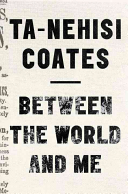The problem of applause
A few weeks ago, Facebook made news with some gossip that the site was trying to find a more nuanced way to respond to posts than simply “Liking” everything. The thinking, supposedly, was that it is inappropriate to “Like” a post announcing a loved one’s death, and people would prefer some other wordless way to show support. This was presented in the media as a novel problem, one created by the relatively new innovation that is Facebook.
But this is not a new problem; it’s simply a very old problem that has migrated to the new-ish realm of social networking. Case in point: the problem of applause. Applause is a blunt instrument which demonstrates, usually, approval. But it’s relatively lacking in nuance.
Tonight, Seattle Arts and Lectures brought Ta-Nehisi Coates to McCaw Hall. The sold-out room applauded a lot. And for good reason! Coates is as intelligent and honest and formidable in person as he is on the page. But when Coates tells a majority-white opera house packed with nearly three thousand people that he can’t tell white people how they should address racism — that “I’m not here to hold white people accountable,” that “only white people can hold white people accountable,” and this is the “burden” that only white people can bear — and when the room responds with resounding applause, well. That’s a complicated round of applause to parse.
Were they applauding Coates’s incisive thinking and bravery in stating the issue plainly without sweetening it through platitudes first? Or were they applauding their own willingness to bear the burden? Was it applause for the fact that Coates chose not to tell white people what to do? That applause could have come from any direction. You have to assume it was well-intentioned, but really it was just as vague as a blocky thumbs-up icon on the news that your aunt Geraldine died peacefully in her sleep of a heart attack. Really, it could have gone any way.

The conversation reached across a wide array of topics, from the 2016 presidential campaign (“Nothing is happening. You just think something is happening…I’ll probably start watching in January,” although Coates admitted that it is “deeply painful to watch Ben Carson,” who has been presented as a role model to young black kids for decades now) to Toni Morrison’s famous claims that Bill Clinton was America’s first black president (“She was not complimenting Bill Clinton…the treatment he endured was very familiar to black people.”)
Conversation kept mostly to race in America. Coates referred to America’s “peculiar” need to “be clean” and “innocent” in all things, but especially when it comes to race. He resisted any efforts to contextualize himself as someone with any special understanding or power on the topic. He insisted, again and again, on identifying himself as just a writer. When asked about his piece about reparations, he replied with some amount of pride that he “tried to write the hell out of that piece,” but when Phillips asked him if the piece accomplished what he intended to do, he became modest again: “it was published, so it did what I intended it to do,” he said.
The audience questions were of roughly the same quality you’ll find at any Seattle reading: a few great ones, a few clueless ones, and one or two that were more of a statement than a question. When asked if he had any “solutions” on the topic of race in America, Coates again stepped back and pointed out that he’s “just” a writer. “I love Joan Didion,” he said, but “there are no solutions to death. I like to stay in my lane. I’m not an activist. I’m not a black leader.”
Coates was asked his opinion of the video of a young black woman being tossed around by a police officer in a South Carolina classroom, and if he thinks we’re becoming numb to violence. To the latter question, he replied with a single word: “becoming?” As to the first, he asked “why was the officer in the classroom” in the first place? It’s because in South Carolina, “disrupting class is a crime,” especially if you’re black.
At the end of the evening, Phillips asked about the news that Coates was writing a Black Panther series for Marvel Comics. “How’s life in [the Black Panther’s fictional home nation of] Wakanda?” Coates was coy: “I probably shouldn’t tell you much about life in Wakanda.” He talked more broadly, instead, about his childhood love of Marvel Comics. “The X-Men would save the world, and people would try to kill them,” Coates said. “It seemed so familiar.” And he spoke adoringly of the medium of comics in general. As a comics reader, “you have to use your imagination to connect the panels. That is a beautiful, beautiful thing. That’s gorgeous.”
At the end of the talk, people walked out into the evening, talking about race. I heard one white woman trying to explain to her partner why she was so moved by Coates’s suggestion that if you were to somehow create true racial equality in America, that white people “would have nothing.” A silver-haired white man told his wife he had never thought so much about race as he had in this one evening. I wanted to applaud him for making that statement, but even I wasn’t sure what that applause would mean. Was I happy he admitted that he's never really thought about race before? Did I want to encourage him for finally thinking about race? Did I want to toss sarcastic praise his way? It’s complicated.